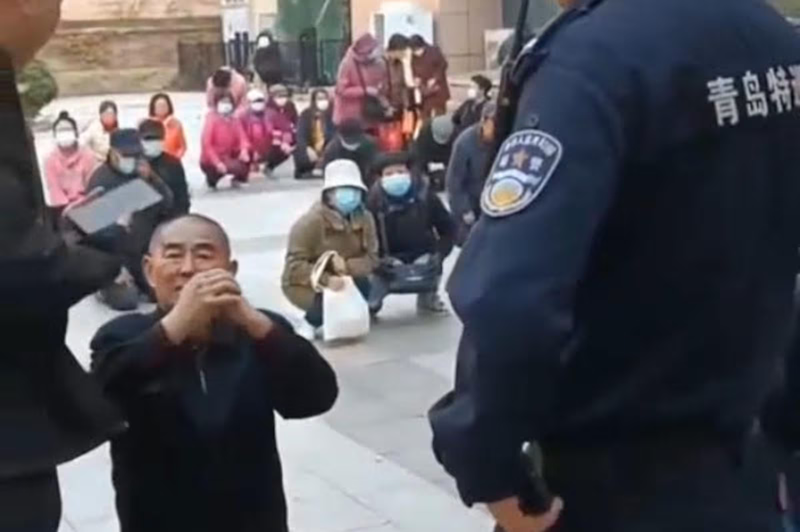
A massive financial scandal has erupted in China’s Shandong province after the collapse of Jiang Haihui Group, a state-backed financial conglomerate accused of defrauding over 100,000 investors. The group’s chairman, An Zhibin, and his wife fled to the United States, triggering widespread outrage and calls for justice across both Chinese and international communities.
Victims say the group illegally raised over 280 billion yuan (~$39 billion USD) through fraudulent contracts, all while operating under the protection and endorsement of local governments. Now, thousands of affected citizens are calling on China’s central authorities—and international institutions—to pursue accountability.
For 15 years, Jiang Haihui operated as a financial service provider with official credentials and government cooperation, partnering with over a dozen municipal platforms across Shandong province. The group offered unusually high interest rates through emergency loan services and business investment schemes, which were marketed at town halls and government buildings.
Many victims believed their funds were safe because the programs were publicly endorsed and co-managed with state-run development zones. However, in August 2024, the company’s capital chain collapsed. Authorities uncovered widespread use of forged contracts, shell subsidiaries, and embezzlement. Over 300 arrests have been made, but the group’s core leadership escaped scrutiny.
According to multiple sources, An Zhibin and his wife Zhou Chunwei were escorted out of China by local officials, despite active investigations. Victims say this was a deliberate act to shield high-level collaborators from prosecution, while ordinary investors were subjected to harassment, detention, and surveillance for protesting.
One protestor remarked, “The government told us to invest. Now that we’ve lost everything, they detain us for asking why.”
In Binzhou, Zibo, Liaocheng, and other cities, families report losing life savings, retirement funds, and housing deposits. Several have taken their own lives out of hopelessness. “My eyes were bloodshot from crying,” said one woman who invested 5 million yuan. “My child has no money to marry. This was everything we saved after being laid off in the 1990s.”
The couple at the center of this scandal is now reportedly living freely in the U.S. Victims fear that unless U.S. authorities act, the country could become a refuge for high-level fugitives from China’s corrupt elite.
If these individuals are allowed to remain, they may use laundered money to buy property, create shell companies, or interfere in political systems abroad—just as other foreign kleptocrats have done in London, Vancouver, and New York.
Jiang Haihui’s collapse is not isolated. It’s part of a broader trend of state-enabled financial crime in China, where elite actors blend public-private operations to raise illicit funds, then flee beyond reach.
Western democracies—especially the U.S.—must understand that Chinese corruption doesn’t stop at the border. It uses international loopholes to evade detection, and Western systems to protect stolen wealth.
When domestic systems enable crime and protect the perpetrators, it’s the international community’s responsibility to deny them safe harbor. America must not reward corruption with asylum.
Because the fallout of unchecked fraud knows no borders—neither should accountability.